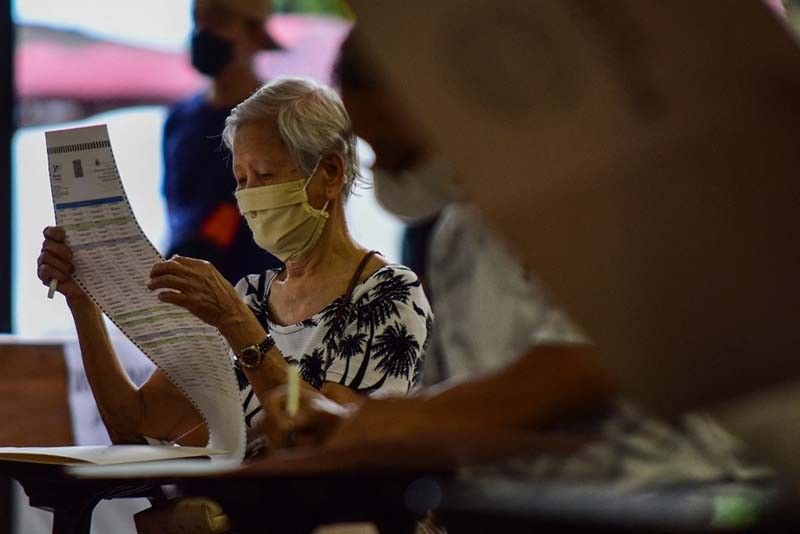Post-election musings

The dust has settled, it seems. It has been over two months since the May 9 polls, a historic event in its own right. The new administration has taken office, and in a few days, we are to hear President Ferdinand “Bongbong” Marcos Jr.’s first State of the Nation Address.
Before that, however, it is good to look back – perhaps one last time, at least for the immediate future – at the recently concluded elections. Lessons can be learned at this time, and provide the much-needed closure after every election.
This year marked the first nationwide election to take place in the middle of a pandemic. It was also the election in recent history that saw the majority of Filipinos voting for our current president and vice president. With these numbers alone, the mandate is clear. After all, over half of the voting population chose to put their trust in now-President Marcos Jr. and Vice President Sara Duterte.
Social media had become a platform for some people to express their distrust of the results. I remember seeing my newsfeed filled with friends and family questioning the transmission of results — why are the percentages steady? Is it rigged? But my social media account is an echo chamber. I am almost certain that there are so many more feeds that were different from mine – feeds of supporters whose candidates were winning.
But I can imagine that a lot of people have questions remaining in their minds. Are these votes legitimate? If they are, where do we go from here?
The Stratbase ADR Institute held a virtual forum earlier this week to address that. The Institute’s research partner, Pulse Asia Research Inc., presented results from a post-elections survey they ran from June 24 to 27, right before the new administration was sworn in. The results were interesting, to say the least.
More than 8 out of 10 Filipinos stated that the results were credible – they found the results to be trustworthy. Beyond this, 9 of out 10 Filipinos expressed satisfaction with the vote counting machines and found them convenient to use. Further, nine out of ten Filipinos also want automated elections to continue.
These are encouraging numbers for the trajectory of our electoral processes. Truly, automation has presented great benefits ever since its institution twelve years ago. There has been much progress with the automated system as well, with the government and civil society continuing to learn from previous elections – there is greater efficiency now than there was in 2010.
Even the Commission on Elections had stated that this election was the fastest and least violent in years, an assertion that the Parish Pastoral Council for Responsible Voting had also echoed. It was a more peaceful election than what they had seen in previous years.
These, of course, are not to discredit the experiences of many who had difficulties with the vote counting machines. I myself waited in line for three hours due to VCMs faltering at my precinct. But the numbers and presentations in the forum better presented the overall picture based on hard data gathered and synthesized with sound methodology.
Some speakers at the forum even noted how people always question the results whether the transmission is slow or fast. This attitude of strong distrust, however, is not the most constructive way to help our country as a new administration takes office. The combative nature seen in various candidates’ supporters during the campaign season has left a bad taste in the mouths of many.
In our Philippine democracy, we should be able to engage with our leaders. And this is what we must strive to do. President Marcos ran with the platform of unity – and so from unity we proceed. To better unite the country involves understanding differences and being open to facts and feedback. It involves holding leaders accountable to the promises and pronouncements they have made, and involves giving credit where credit is due.
At the Institute, our think-tank president Prof. Victor Andres Manhit expressed having a “cautious optimism” with the new administration. I am inclined to share that view as this new government begins its term. President Marcos' Cabinet alone demonstrates a crossing of different political “colors”, with an impressive team of technocrats in office. On that note, at the very least, he seems to be following through with his promise of unity. But we must be watchful of where things go from here.
Indeed. the elections were stressful, and indeed very divisive. Nonetheless, the post-election period offers Filipinos more opportunities to participate in a democratic set-up, and that is what we can look forward to in the next six years.
Hopefully, the Institute's forum was able to address many questions on citizens’ minds. Moving forward from this electoral contest, we must seek to go beyond our echo chambers and no longer take an extremely combative stance towards those with differing political colors. Rather, we must try, as constituents of this democracy, to come together and hold our leaders accountable to their campaign promises and subsequent policy pronouncements.
Kim Bay is program and advocacy manager at the Stratbase ADR Institute and program coordinator at Democracy Watch Philippines. The views expressed in this commentary are her own.
- Latest

























